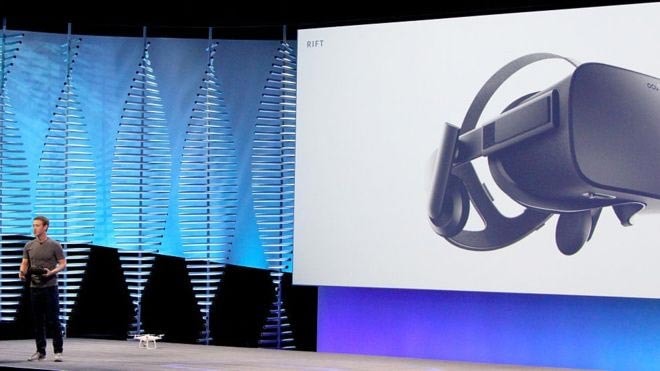Facebook loses $500 million lawsuit for 'stolen' technology
A US court has ordered Facebook and other defendants to compensate a company for illegally using the company's virtual reality (VR) technology.
 |
The jury found that Oculus, which was acquired by Facebook in 2014, used computer code owned by video game developer Zenimax to develop its VR headset. Oculus said it was “disappointed” with the verdict and said it would appeal.
The legal dispute threatens to overshadow Facebook’s latest results. The social network had a strong 2016, with net income more than doubling to $3.6 billion in the fourth quarter of last year, thanks in part to a 53 percent increase in advertising revenue. The social network also said it was on track to reach 2 billion users worldwide in the first half of 2017.
After a three-week trial, a US court has decided that Facebook, Oculus and Oculus executives must pay damages to Zenimax. The video game developer accused Oculus of illegally copying its original modifications of VR technology to create the VR Rift headset.
"We are pleased that the jury in our case in the US federal court in Dallas has awarded Zenimax $500 million in damages for the defendants' copyright and trademark infringements," said Zenimax CEO Robert Altman.
Palmer Luckey, co-founder of Oculus, was also found to have broken a nondisclosure agreement with Zenimax. However, the jury ruled that none of the defendants stole Zenimax's trade secrets.
Few people have caused Facebook CEO Mark Zuckerberg as much trouble as Palmer Luckey. The 24-year-old co-founder of Oculus paid handsomely when Facebook moved forward with its $2 billion acquisition. But Luckey used some of that money to fund a pro-Donald Trump campaign, forcing Facebook to ban him from public appearances. He even skipped his company’s developer conference last year.
The jury's finding that Luckey broke a nondisclosure agreement with Zenimax means Facebook will now have to pay the company $500 million, unless the social network wins on appeal.
Luckey still works for Facebook, but it’s unclear what his position is at the company. Zuckerberg, meanwhile, has not commented on the new ruling. When he testified in court last month, the Facebook boss flatly denied that “Oculus products are based on anyone else’s technology.”
According to VNN
| RELATED NEWS |
|---|

